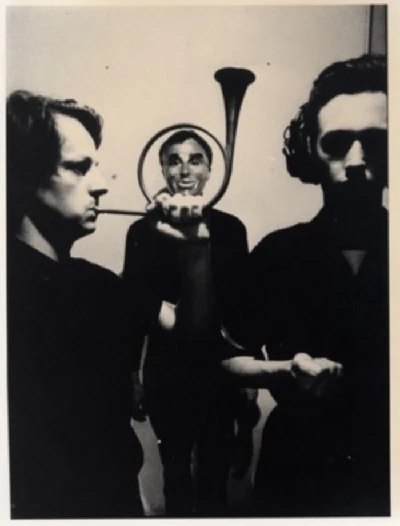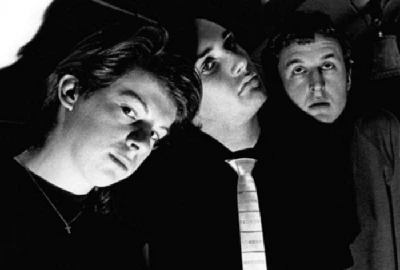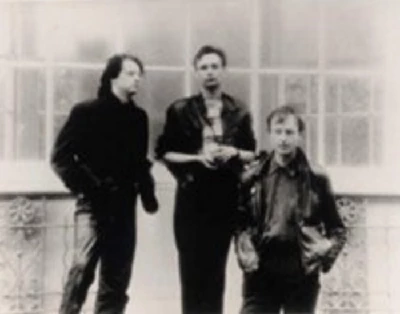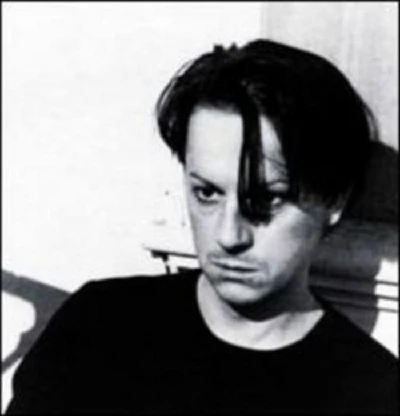published: 11 /
1 /
2009
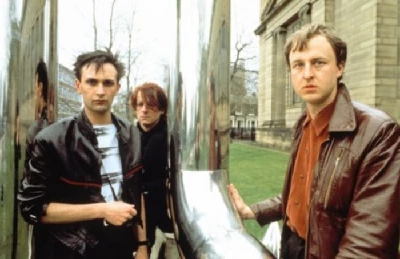
Denzil Watson speaks to Richard H Kirk from influential Sheffield-based industrial/electronic group Cabaret Voltaire about his band's early years, their involvement with the young Factory Records and the recent return of his group
Article
The recent release of 'Communications : The Factory Box Set' to commemorate the 30th anniversary of the iconic and innovative Manchester based-label, overseen by the now sadly departed Tony Wilson, may or may not have escaped your attention. Packaging sixty-three tracks over four CDs and spanning the whole of the label's life, it features tracks by Factory staples such as Joy Division, New Order, the Happy Mondays and the Durutti Column to name a few. A band associated with the label back at its inception in 1978, contributing two tracks to Factory's first musical release (FAC2 - A Factory Sampler) was Sheffield noise-art terrorists Cabaret Voltaire.
Pennyblackmusic caught up with the Cabs' Richard H Kirk for a chat about the band's early years, their involvement with the fledgling Factory and the lowdown on the return of one of Sheffield's most innovative bands of the last 30 years later in 2009.
PB: Taking you back to 1974, have you still got vivid memories of when the Cabs first started off?
RK: Yeah, we started off in Chris [Watson’s] attic because he had some basic recording equipment so we used to go there two or three times a week at night.
PB: Did it feel like you were doing something new and exciting back then?
RK: I’m not too sure whether it felt new or exciting. We were more or less doing what we could within the means that we had as we didn’t have loads of equipment or stuff. We could have ended up doing films or literature or whatever. It was just that music was the most instant way of communicating.
It wasn’t until we actually started going out and doing things live that it became a bit more interesting because obviously we were working in isolation. We released a few very limited edition cassettes, maybe 25 or something, which we would sell or give to people we knew and we occasionally sent tapes to record companies which didn’t go down very well!
PB: I’m just trying to think what the musical landscape was like in Sheffield back then in the mid to late 1970s.
RK: We kind of came in between glam rock and punk and what was happening was a lot of prog stuff. There’s lots of little interesting bits in prog where they use electronics but it was far too muso and grand for our taste. We wanted something a lot more aggressive and basic and that’s what we set off trying to do really.
PB: Did your surroundings influence the Cabs musically? It must have been pretty bleak in Sheffield back then.
R : You can’t help think that. The general landscape of Sheffield was pretty grim – it was still a kind of post-war scenario – a lot of bombed-out buildings. And Sheffield was a very industrial city – a lot of steel works. I used to live in Pitsmoor which was on the edge of Attercliffe and the Don Valley where all the industry was so you could actually hear all that stuff when you were laid in bed at night. You could hear the drop forges and noises would drift out. I always think that there must have been some psychological influence at play but it’s very difficult to say. There wasn’t a great deal happing in Sheffield musically at that time. There were a lot of bands playing covers of chart songs.
PM: It sounds pretty depressing.
RK: Yes, it was. And we just had this kind of attitude “well we’ve got nothing to lose and we’re going to do what the fuck we want” and create a bit of antagonism.
PB: Which I believe you achieved at your first gig in Sheffield. Did I read that you were dressed in a jacket covered in fairy lights?
RK: Yeah, something like that. At the time I was at art school and I was doing what you would probably describe these days as installations so I had access to a few things. But, yes, I did make this jacket which was based on Christmas tree lights to create a strange effect. I had to insulate the jacket with rubber so I didn’t get killed because it was pulled directly into the mains.
The first concert we did ended up in a lot of trouble. We did say to the people who promoted the concert that we could play rock music so we kind of lied there anyway and I think there was a lot of umming and ahhing about it like “What the fuck are you doing? You’re ruining our reputation.”
PB: Whereabouts was it?
RK: It was at the university. The upper refectory at the university. We played two sets. I think it was in the second set when it went kind of crazy.
PB: So even from the start it would be fair to say that one of the objectives of the band was to challenge the listener and get a reaction?
RK: Yeah – I mean, any reaction was good as far as we were concerned. And anything other than people being disinterested was better than being ignored.
PB: If I bring you forward to 1978, the Factory Box has just seen the re-release of the two tracks you contributed to the label's debut. Was your appearance on 'A Factory Sampler' critical in the Cabs early development?
RK: It was just another way of getting the music across and a great package. I think Tony Wilson had been able to do it because his aunt had left him some money or something. It was just one of those things of being in a certain place at a certain time. We’d previously released a four track EP for Rough Trade called 'Extended Play' so was the second thing we had out. There were two tracks on there along with Joy Division, Durutti Column and John Dowie.
Basically how it came about was I’d sent some music to the New Hormones label, the one that put out the Buzzcocks' 'Spiral Scratch' EP. Richard Boon [not the American actor!] had heard the music and at that time I don’t think they were in the position to put out any music but I think he had passed on the tape to Tony Wilson and it went from there. We got invited to play the first night of the Factory in the Russell Club in Hulme [on 9th June 1978] and we got asked to give a couple of tracks to the 'Factory Sampler' which we gladly did. The first track we gave was 'Baader Meinhof' which was already recorded and I think we recorded the other track 'Sex in Secret' specifically for the record.
We never signed a deal with Rough Trade as it was always done on a record-by-record basis so what I think you could say was that, at that time, we would have quite happily gone and recorded more stuff for Factory because they were Northerners and we had a bit more in common with them than Rough Trade. But Rough Trade actually came up with the money to buy a four-track so we went with them. It was almost mercenary.
PB: I was going to ask you about that because the Factory aesthetic fitted well with the Cabs sound, didn’t it?
RK: Yeah – I’d say so. We became quite close with Joy Division and played quite a few shows with them. We had a lot of respect for Joy Division. We also played with A Certain Ratio, Stockholm Monsters and Crispy Ambulance. We definitely felt like kindred spirits.
I think the only problem that would have arisen was that Factory had their own in-house art director, Peter Saville, whose work I love but I don’t think it would have worked with Cabaret Voltaire. Basically I used to do a lot of the Cabs sleeves which were very cut-and-paste and very crude. Like I said earlier, I was at art school and it just seemed very natural to make collages. I think in retrospect that might have been a problem – a bit too uniform. That was part of the Factory thing. A very distinct look, aware of design and very ahead of their time. But I think that might have caused a few problems if we had of decided to go with Factory. We were certainly quite involved with Factory right up to the Hacienda.
PB: Any particular memories of playing with Factory bands such as Joy Division that stand out?
RK: Other than they were an amazing band to see live and it was a pleasure to be on the same bill. I think Joy Division used to open for Cabaret Voltaire because at the time we were a bit better known. It was only when 'Unknown Pleasures' came out that they became a lot bigger. They were more commercially viable than the Cabs because they had more recognisable song structures and perhaps, in the earlier days, they weren’t quite so electronic as they became. It was more kind of rock based. I would say on the one hand you had Throbbing Gristle at that time that were quite extreme and noise based. On the other side you had Joy Division and Cabaret Voltaire came somewhere in between.
PB: Do you think the Sheffield music scene was hindered by the lack of an equivalent label similar to Factory?
RK: Yeah, although most of the people who were doing interesting stuff at the time like the Human League were getting the material out. They got their stuff out before us even though we started along time before them. They were in touch with Fast Product, a label run by a guy called Bob Last. That all came about because a guy called Paul Bower who ran a fanzine called 'Gun Rubber' had a band called 2.3, a kind of punky band, and Paul had made contact with Fast and introduced them to the Human League.
The good thing about Cabaret Voltaire’s association with Factory and Manchester was that it got the band outside of Sheffield. A lot of the bands at the time didn’t, while we got outside of Sheffield and I think we actually played Manchester more times that we played here. We played London from time to time but we never went chasing for shows. We always thought if people want us they'd find us and come to us. We didn’t have a manager chasing this kind of things up. It just kind of evolved.
PB: Was the departure of Chris Watson in 1982 a major turning point in the Cabs' sound?
RK: It was really because when Chris left it was very much a case of “Well, what can we do now?” as we’d already done the extreme industrial noise type thing so there was no point in going back to that. So we decided to go more for the dance floor.
PB : There was a notable move in the direction of dance floor post-Yashar wasn’t there?
RK: Yeah – there was a deliberate decision that if we were going to carry on working as Cabaret Voltaire then it needed to change. One point that I always make is that once Chris Watson had left we never performed any of the songs or the tracks that Chris had been involved in live. It was a definite move.
I’m in the same situation now as I’m going to be carrying on with Cabaret Voltaire. Stephen Mallinder left in 1993 and I’m now in a similar position where I’m deciding which direction to take the project and it will be something totally new.
The first project is a remix of a New Zealand band called Kora. That’s the first Cabaret Voltaire project although it’s not a Cabaret Voltaire album. It’s in the vein of Mad Professor meets Massive Attack. I’ve already seen people on-line being a bit snide about it saying “Oh Richard H Kirk's just using the name,” and that’s rubbish because the two other members left and I was given the option to carry on. To me it’s just a logical progression.
PB: So does that mean new Cabaret Voltaire recordings?
RK: Yeah, and live performances. But it won’t be about nostalgia. I won’t be going back in that respect. It will be a totally new thing. It’s not going to be anything remotely connected with song structures. I’m not going to be hiring a new vocalist to replace Stephen or anything like that.
What I’m intending to do with it is make it more gallery based, and instillation type thing whereby it won’t be in rock venues or anything like that. It’ll be more towards the cultural side of things which is kind of where it started from. That’ll be the initial phase. Whether in the future I decide to do a Massive Attack and get a few guest artists in because I know enough people that would be interested.
I don’t know what it’s going to be as I haven’t started working on it yet, but I can tell you what it’s not going to be if that’s any use! I’m excited by it and there’s a lot to live up to so it’s a challenge.
PB: That all ties in with the Cabs gigs I saw in the mid to late 80s. Even if you’d just released something you’d always be looking forward and playing stuff off the forthcoming releases.
RK: Exactly. That’s the way I still feel about it. If people want to listen to the old material then dig out the old records or CDs.
PB: Another thing about your live gigs that struck me was it was always more of a multi-sensory art experience rather than your traditional rock gig. Was that your intention to challenge the audience on more than one level?
RK: Exactly. It was always a multi-media thing. It started out with the slides I’d did and Standard 8 film and then slowly graduated into video projections when video equipment became a bit more accessible in the early 80s.
PB: Did you also do the music promos yourself too?
RK: The stuff we used to show live was the stuff that I’d done but in terms of the promos we worked with Peter Care whom I’m working with again on a project. He moved to Los Angeles 20 years ago and he’s been based out there. He did all the famous ones like 'Don’t Argue', 'Sensoria' and 'I Want You'. And then we worked together on a project called 'Gasoline in Your Eye' which was a long-form video release. That’s probably going to be re-issued in DVD form later in the year. It would be nice to get that back out there as the visual side of what Cabaret Voltaire did has always been very important to me.
PB: And without getting too nostalgic, are you quite happy with the way the band’s early recordings have stood the tests of time so well ? For example 'Nag Nag Nag' still sounds compellingly fresh and urgent, doesn’t it?
RK: Yeah, I’d agree. It was revived and they named a club after it. A lot of people started playing it again. And Ladytron did a cover version because I had to transcribe the lyrics for them. It was quite a good version and that worked quite well. I think a lot of the material has held up very well.
PB: And 'The Crackdown' material too.
RK: Well, we are re-living the 80s all over again. A lot of people are sampling 80s stuff and 80s electro and it’s come around again. I’m sure it’ll come around again and again. Some music can endure and some can sound dated. Cabaret Voltaire never really felt like part of any particular time. We were always at a distance from everything when we were recording those things.
PB: Did the lack of commercial success the Cabs had bother you when you consider the success bands like the Human League achieved?
RK: Not particularly. We knew our limitations. We weren’t brilliant song writers and we weren’t looking to make pop music. The Human League always made it clear that they wanted to make pop music with synthesisers. We always used to describe what we did in the early days as experimental pop music.
In terms of commercial success when 'The Crackdown' came out in 1983 it went into the Top 40 of the national charts. In the later stages when we made two albums for EMI ['Code' and 'Groovy, Laidback and Nasty'] they were probably more disappointed about the lack of commercial success than we were as 'Code' probably sold about 100,000 copies. A lot of those sales were in America but really we could get things like 'Don’t Argue' onto the radio. It was just a bit too weird. And they certainly wouldn’t show the video on Saturday morning kids TV.
That was part of the problem. We were kept out of the mainstream because Radio 1 didn’t support what we were doing. Maybe you would get a play in the early evening but I think if people would have been able to hear some of the singles and stuff I think they could have been quite successful but basically we just didn’t get the exposure and that’s what held us back. We were never looking to write out and out pop songs anyway.
PB: Do you think the Cabs have been afforded the critical acclaim you innovative approach to making music deserved?
RK: I think you’re asking the wrong guy about that. I can’t really answer that. I think the fact that there are people still talking about us 25 years later kind of speaks for itself for it really. And that bands are still citing Cabaret Voltaire as an influence or ripping us off. We must have done something that had some kind of influence.
PB: Are you in touch with the current Sheffield music scene?
RK: I did a remix last year for Reverend and the Makers. I know Jon McClure and I’ve met with him a few times and I may work with him on a few projects in the future. I know he’s quite busy at the moment, but I’ve got a lot of time for him. Also we’re both big fans of reggae like Bob Marley and we’ve got some political views that are quite the same. I like Jon as he’s not afraid to speak his mind and you don’t often see that with the younger groups. They’re more interesting in careers and climbing up the ladder, so they tend to not want to rock the boat. That's how I found what Jon’s about because I kept reading interviews with him and I’m thinking that this guy’s a bit of a kindred spirit. I’m always wary of people who don’t have an opinion.
PB: I have to say I’m struggling to think of bands on the scene currently in Sheffield that are pushing the envelope like the Cabs did.
RK: Well, times are different, aren’t they? When we were doing things in the late 70s there weren’t that many bands. Now there are so many bands. Everyone’s got a laptop and everyone can make music. Back in the day technology wasn’t available at such a cheap level as it is now.
PB: Richard H Kirk, thank you very much for your time.
Southampton-based label Shiva Records releases a re-working by Cabaret Voltaire (the first new work by Cabaret Voltaire since 1993) of key tracks from the debut album of Shiva act Kora. Described as sounding like “Bob Marley & The Wailers meets...well, Cabaret Voltaire”, 'Kora, Kora, Kora: The Cabaret Voltaire Versions' is released in February 2009. More info: http://www.shivarecords.com/ and track previews at: www.myspace.com/shivarecordsltd
Picture Gallery:-
